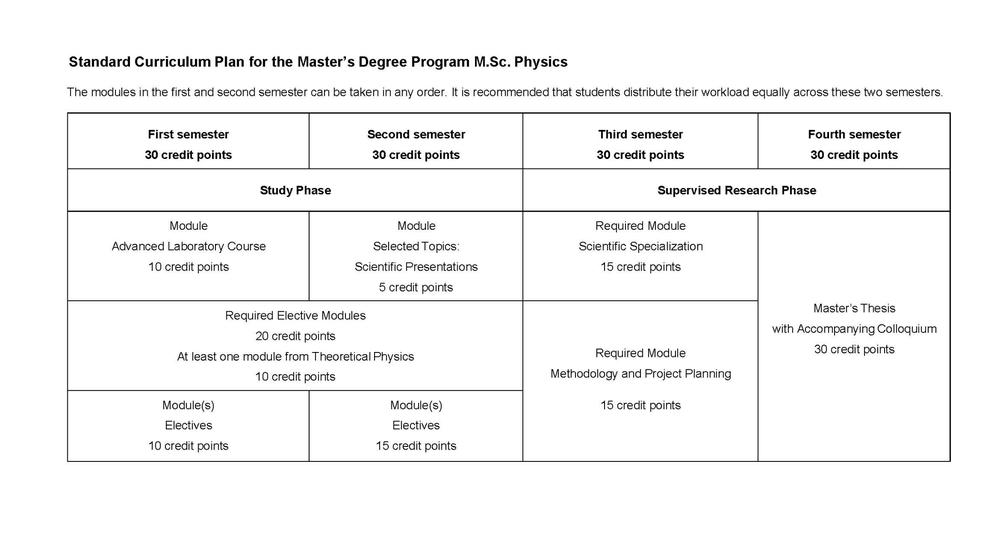Program Structure
To complete the Master's program, a student must earn 120 credit points (CPs). It is recommended to take approximately 30 CPs per semester.
During the first year, students deepen their understanding of modern physics.
Compulsory - 15 CP
- Advanced Laboratory Course
- Selected Topics: Scientific Presentations
Compulsory-elective - 20 CP
Students must complete two modules, with at least one in theoretical physics.
Modules to choose in theoretical physics
- Advanced Quantum Mechanics
- Statistical Physics and Thermodynamics
- Advanced Statistical Physics
- Quantum Field Theory and Many-Body Physics
Modules to choose in experimental physics
- Advanced Solid State Physics
- Advanced Atomic and Molecular Physics
- Advanced Biophysics
Elective - 25 CP
Students select modules from the offerings of the Department of Physics (ca. 25 modules) or other departments according to their personal interests. Non-physics modules, e.g. German Language Course or Computational Methods, may also be taken to acquire interdisciplinary skills and additional qualifications for professional development.
Students specialize in a current research area of modern physics. They join various research groups and complete a master’s thesis within these groups. Throughout the research phase, each student receives individualized supervision from a university faculty member.
Compulsory
During the research phase, students are automatically enrolled in the following modules:
- Modul Scientific Specialization - 15 CP
- Modul Methodology and Project Planning - 15 CP
- Master’s thesis with accompanying colloquium - 30 CP
The Master’s course would typically follow the following schedule. Students are free to design their schedule individually.
For more details on the structure of the Master's program please see Study Regulations.
As a master's student of physics, you can gain a master's double degree from the Freie Universität Berlin and the Institut Polytechnique de Paris.
